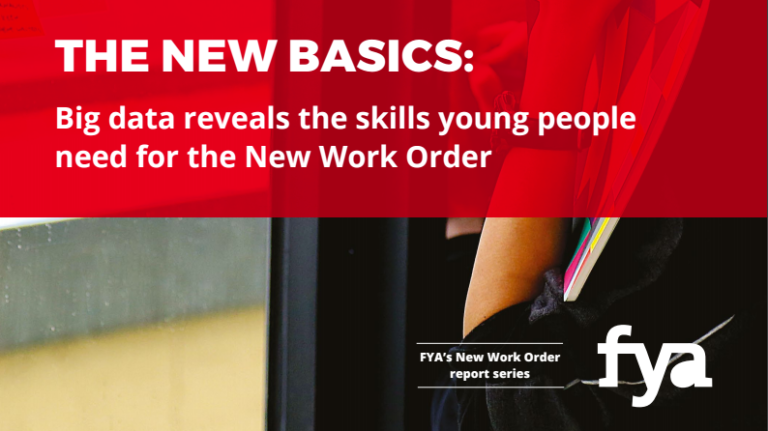The Sydney based strategy company AlphaBeta recently compiled a fascinating report for the Foundation for Young Australians. The report, entitled “The New Basics” looked at the skills young people will need for the ‘New Work Order’. It is based on the belief that Australia is undergoing the most significant disruption in the world of work since the industrial revolution. Employers are now looking for what the report calls ‘Enterprise Skills’. These are transferable skills that allow young people to be enterprising so they can navigate complex careers across a range of industries and professions. They include problem solving, financial literacy, digital literacy, teamwork, creativity and communications. These are different from technical skills which are specific to a particular task, role or industry. The report stated that jobs of the future will demand enterprise skills 70% more than jobs of the past.
A changing workplace
Over the last quarter century in Australia a revolution has occurred in the way people work. The country has lost over one million lower skilled jobs in manufacturing, administration and labouring but gained more than a million jobs in the knowledge and service industries. The shift has been from lower skill or manual jobs towards roles with higher skill or high interpersonal contact. With increasing automation and robotisation this trend is only going to increase and accelerate. The OECD has argued that ‘the increased rate of innovation across economies requires the workforce to possess both technical competence and generic skills – problem solving, creativity, team work and communication skills’. This then is the backdrop to a world where youth unemployment is high and youth underemployment is even higher. Paradoxically, employers hungry for talent report that they have difficulties finding young people with essential workplace skills. In addition, in Australia, only one in ten teachers have recently participated in professional development to help students develop generic, transferable skills for the future workplace.
Recommendations
The report concludes with a number of recommendations as follows:
1. Set the scene with the curriculum – the high demand for enterprise skills underscores the importance of general capabilities being retained and elevated in the curriculum and there are a number of countries around the word who have taken steps to redesign their curriculum and explicitly embed 21st century competencies and enterprise skills like problem solving, collaboration, global awareness and communication skills.
2. Rethink teaching methods – teaching enterprise skills often doesn’t require discrete subject matter but instead requires a change in pedagogy which includes cross curriculum content and team teaching and greater use of inquiry and project based learning
3. Develop teachers – these new inquiry approaches are highly dependent on the knowledge and skills of the teachers engaged in trying to implement them and teachers will need help and support to organise sustained project work
4. Partner with employers – enabling enterprise skills to be developed in work based environments such as work placements or internships. This means that education and employment systems need to be better integrated.
Last word to the Foundation for Young Australian’s CEO Jan Owen – “We need all young Australian’s to learn the skills to be digitally literate, financially savvy, innovative and adaptable and help them navigate complex careers of the future and thrive in every aspect of their lives. The decisions we are taking today will have a true impact on the future of our nation”.



